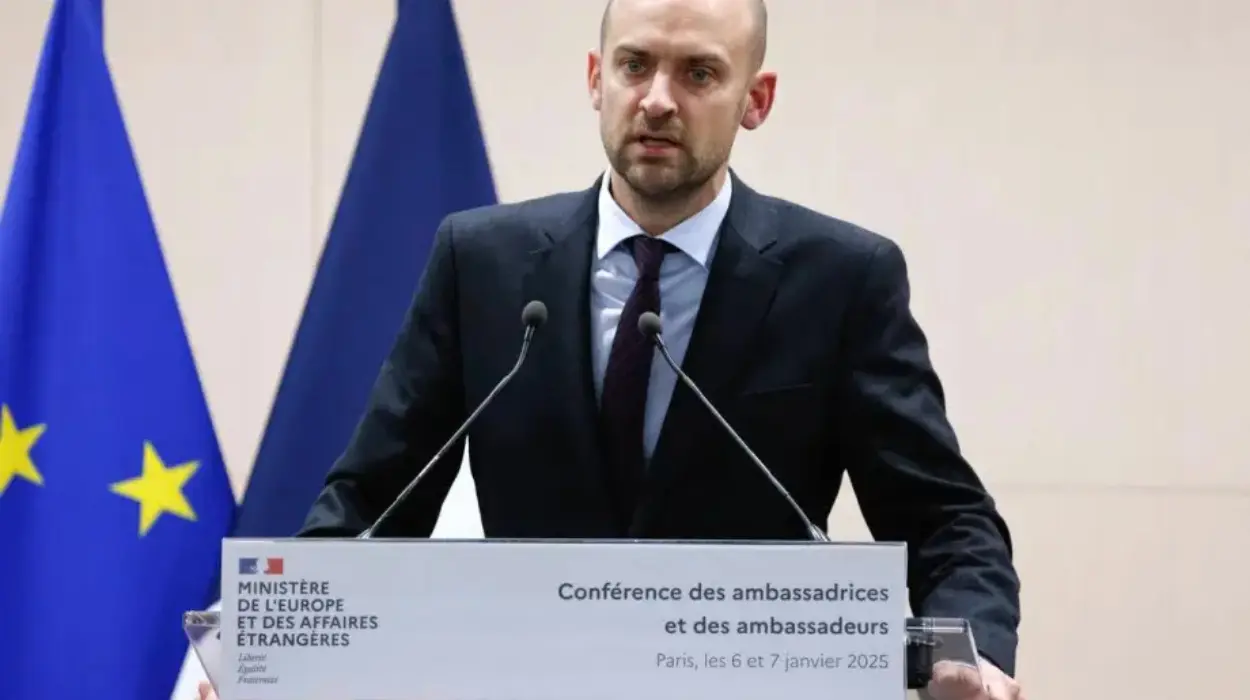France has formally urged the European Union (EU) to reassess its long-standing cooperation agreement with Israel, citing mounting concerns over the worsening humanitarian crisis in Gaza and Israel’s adherence to human rights obligations. French Minister for Europe and Foreign Affairs, Jean-Noel Barrot, voiced his country’s concerns on France Info radio, stating that the EU-Israel partnership must be urgently reviewed due to Israel’s role in obstructing vital humanitarian aid to the Gaza Strip.
Barrot’s comments came as the humanitarian situation in Gaza reached a critical point, with food, water, and medical supplies running dangerously low. He emphasized that the European Commission should examine Israel’s compliance with the EU-Israel Association Agreement, which was founded on principles of human rights, democracy, and respect for international law. The agreement, signed in 1995 and in force since 2000, governs the political and trade relations between Israel and the EU.
Read Also: EU Condemns Forced Displacement and Rejects Territorial Changes in Gaza Strip
The Humanitarian Crisis in Gaza
The humanitarian situation in Gaza has grown dire, with reports of widespread starvation, lack of clean water, and shortages of essential medical supplies. The blockade imposed by Israel has compounded the suffering, preventing vital aid from reaching those in need. Barrot expressed his alarm over the situation, stressing that Palestinians in Gaza are facing a severe crisis, with millions on the brink of starvation and homelessness.
Barrot stated, “This is a legitimate request and I call on the European Commission to examine it.” He further noted that the EU-Israel agreement is based on shared principles of human rights and democracy, questioning whether those values are being upheld in the current situation. He called for the EU to take decisive action in response to the ongoing crisis.
Growing Divisions Within the EU
France’s call for a reassessment of the EU-Israel agreement reflects growing divisions within the 27-member bloc over how to address the situation in Gaza. While some EU countries, including Spain and Ireland, have previously called for the suspension of the agreement, others have adopted a more cautious stance. The Netherlands has also echoed France’s call for an urgent review, highlighting the increasing dissatisfaction within the EU over Israel’s actions in Gaza.
The European Union has faced pressure to take a stronger position, with several member states questioning the effectiveness of continuing to maintain close ties with Israel while the humanitarian crisis in Gaza continues to deteriorate. However, other countries, such as the United Kingdom and Germany, have been more reluctant to take a hardline stance, citing the importance of diplomatic engagement with Israel and the complex geopolitical situation in the Middle East.
EU’s Position on Humanitarian Aid
Earlier this week, EU foreign policy chief Kaja Kallas stated that Brussels had offered assistance to Israel in facilitating the distribution of humanitarian aid to Gaza. The EU has been involved in providing aid to the region, but its efforts have been limited by Israel’s blockade and ongoing security concerns. While the EU has expressed concern about the humanitarian situation, it has also been cautious in applying pressure on Israel, fearing that it may undermine diplomatic relations or exacerbate tensions in the region.
Despite these challenges, Barrot has emphasized the need for the EU to take a more assertive role in addressing the humanitarian crisis. He criticized Israel’s response to the situation, describing it as “incomprehensible” and urging the EU to use its diplomatic influence to press for an end to the blockade and for the delivery of humanitarian aid to those in need.
Conclusion: The EU’s Responsibility in Gaza
Barrot’s comments reflect the growing pressure on the European Union to re-evaluate its relationship with Israel in light of the ongoing crisis in Gaza. As the humanitarian situation worsens, there are increasing calls for the EU to take stronger action in ensuring that Israel upholds its human rights obligations under the EU-Israel Association Agreement.
The EU’s response to the Gaza crisis will have significant implications for its relationships within the Middle East and its global standing on human rights issues. The coming weeks will be crucial as the European Commission reviews the EU-Israel partnership and considers the next steps in addressing the dire humanitarian needs of the Palestinian population in Gaza.
This article is originally published on: middleeastmonitor









